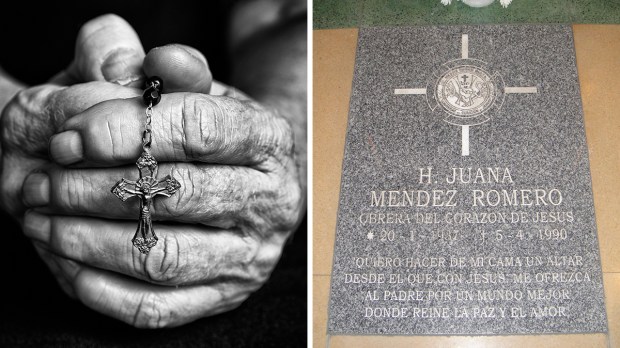On February 18, Pope Francis advanced three causes for canonization, highlighting three religious who struggled with different disabilities.
Pope Francis has often highlighted the value of persons with disabilities and how they are capable of pursing Jesus and following his path for them. He commented on this reality in a message for the International Day of Persons with Disabilities in 2021.
The Gospel is also for you! Its message is addressed to everyone; it is a word of consolation and, at the same time, a summons to conversion. The Second Vatican Council, in speaking of the universal call to holiness, teaches that “all the faithful of Christ of whatever rank or status, are called to the fullness of the Christian life and to the perfection of charity … In order that the faithful may reach this perfection, they must use their strength accordingly as they have received it, as a gift from Christ … They must devote themselves with all their being to the glory of God and the service of their neighbor” (Lumen Gentium, 40).
The Gospels show that whenever persons with disabilities met Jesus, their lives changed profoundly, and they became his witnesses. Such was the case, for example, of the man blind from birth who, after being healed by Jesus, boldly declared to everyone that Jesus was a prophet (cf. Jn 9:17). Many others joyfully proclaimed what the Lord had done for them.
Here are the three individuals who were named “venerable” by Pope Francis and the struggles they endured.
The Italian Carmelite religious Immacolato Giuseppe di Gesù (Aldo Brienza, 1922-1989) was was severely handicapped for most of his life, and was admitted to religious life only through a special dispensation from the Holy See. Lying on his bed for decades, he offered his suffering “in union with Jesus” for the good of the Church and his spiritual family.
The Brazilian nun Benigna Victima de Jesus (Maria Concetta Santos, 1907-1991), of the Congregation of the Helping Sisters of Notre-Dame-de-la-Pitié, was faced with racism and ridiculed for her obesity, which was due to hormonal imbalances. She was noted for her sense of humor and self-mockery, and for her devotion to the poor and excluded.
The Spanish nun Juana Méndez Romero, known as “Juanita” (1937-1990), also had a life marked by disability. Paralyzed after contracting typhus during her childhood, she nevertheless obtained permission to join the Congregation of the Worker Sisters of the Heart of Jesus. She managed, with only the use of her head and her hands, to take on catechism missions and conducted a dense correspondence through letters with missionaries.



